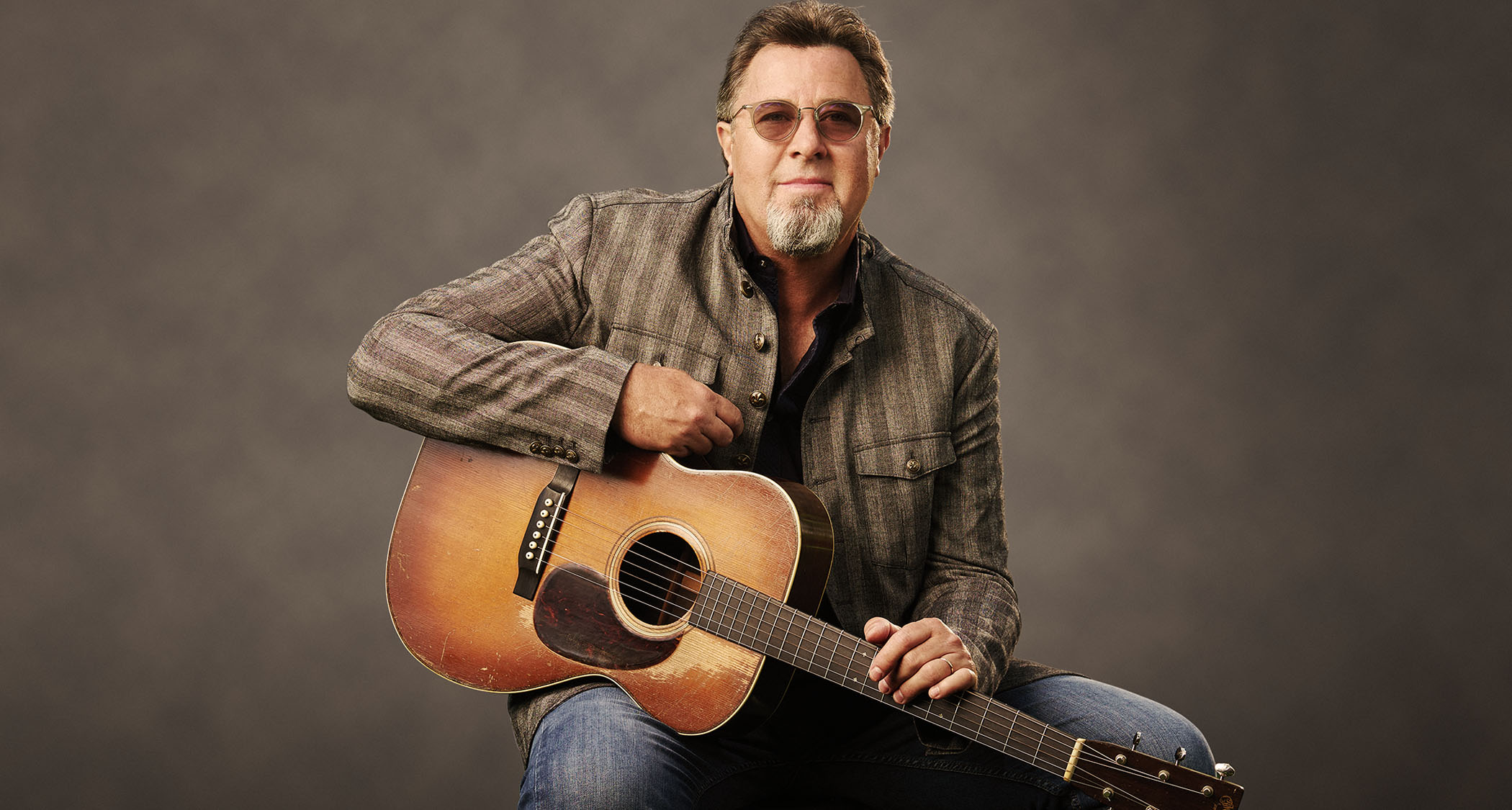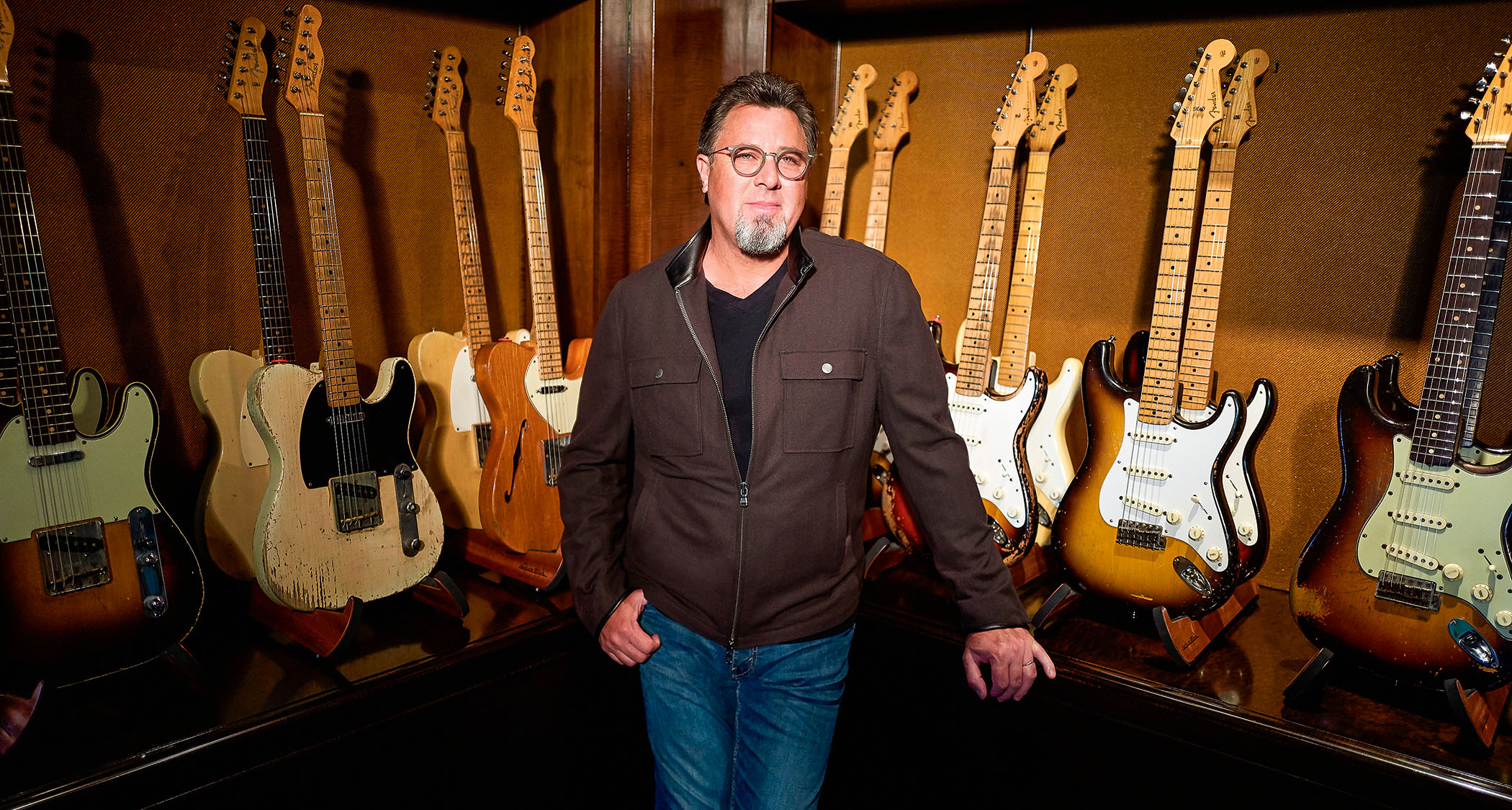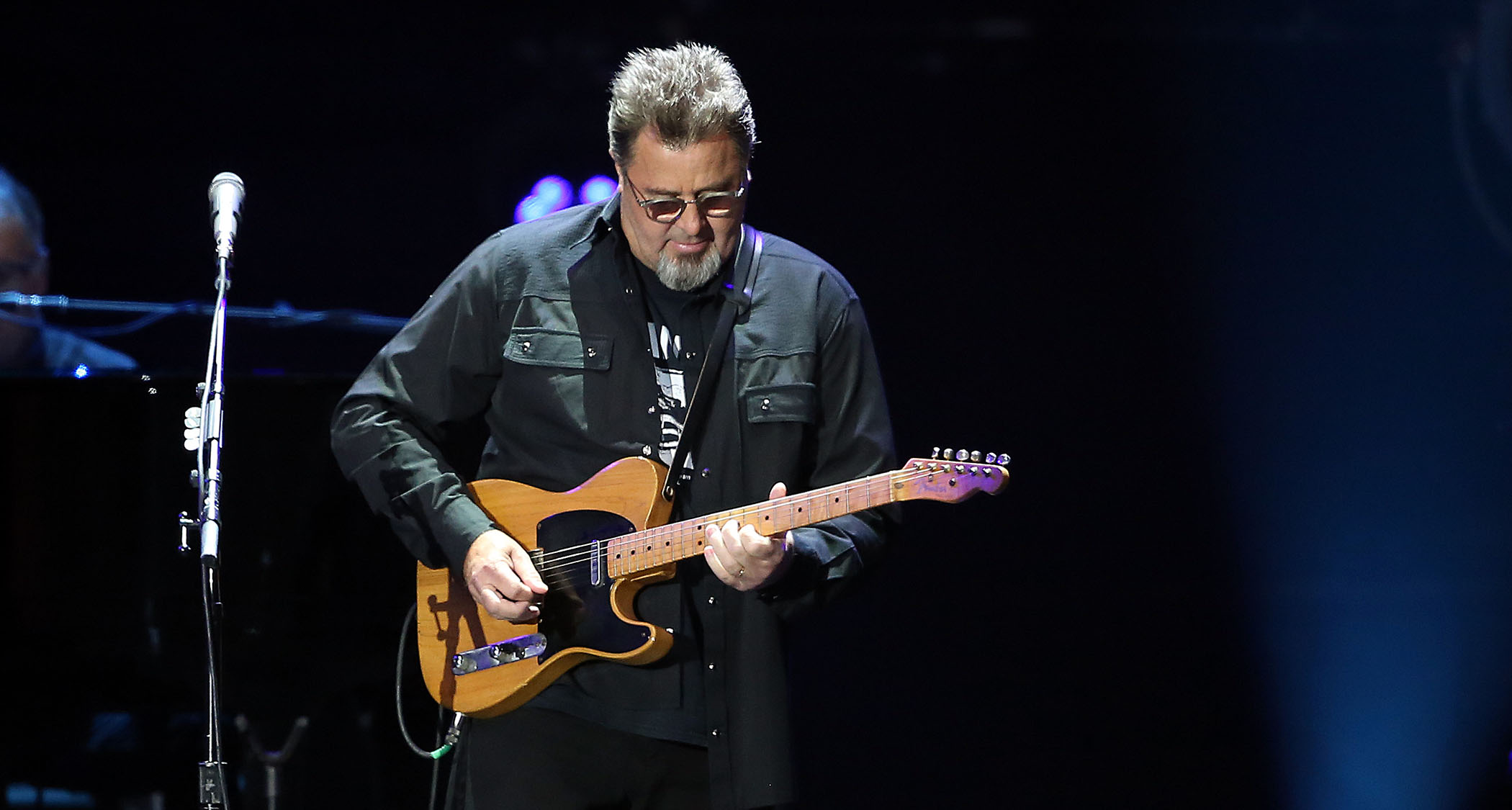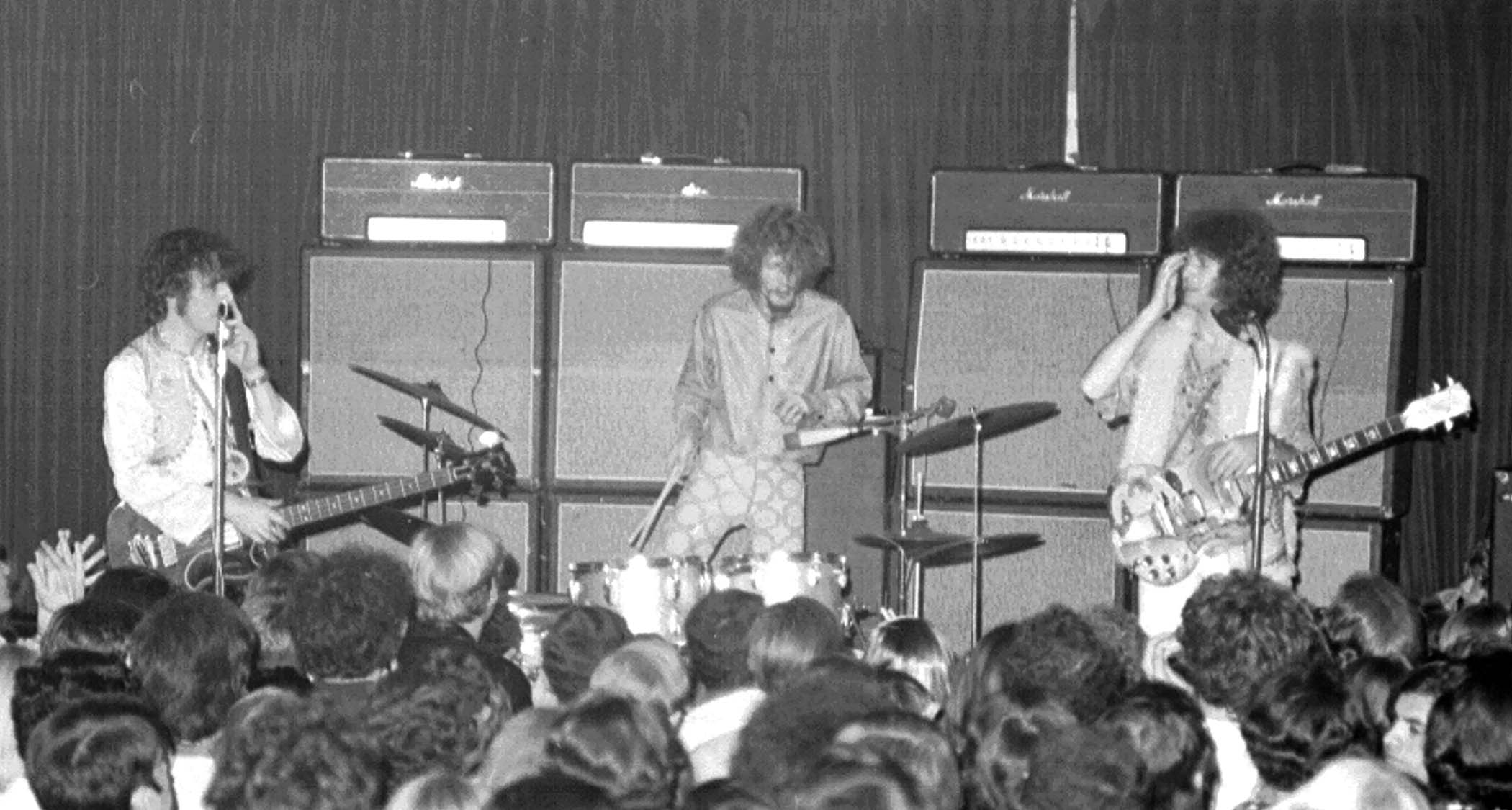“I look over to the side and see Joe Walsh while we’re playing Rocky Mountain Way, and I’m transported back to being a kid in my bedroom”: Vince Gill on flying high with the Eagles – and why every vintage gear dealer has him on speed dial
Vince Gill joins us to explain why he’s perfectly happy “ripping powerchords for Joe”, what makes rhythm guitar more important than lead and how to move up the vintage guitar ladder

All the latest guitar news, interviews, lessons, reviews, deals and more, direct to your inbox!
You are now subscribed
Your newsletter sign-up was successful
By Vince Gill’s admission, most know him as the ‘country-rock guy’. That checks out given his resume, including Pure Prairie League and a decidedly country-leaning solo career spanning over 20 records.
When Gill joined the Eagles in 2017 in the wake of Glenn Frey’s death, some were surprised that the SoCal classic rockers would choose such a Nashville-leaning player to take his place. But the move made sense – especially considering the Eagles’ own early ’70s country roots.
“I enjoy spontaneity,” Gill tells Guitarist. “I love trying different things, and with this gig I knew it wouldn’t be much of a guitar gig.”
That’s an odd take for a player known for his guitar exploits, but there’s a method to Gill’s madness. “I’m fine with it,” he says. “My favourite compliment came from Don Henley, who got a country rock guy in his band because I know how to be in a band. That’s high praise. I know what’s needed and don’t waste time playing stuff that no-one wants to hear.”
If the Eagles had gone with a younger gun, the inclination to overplay might have influenced the nuances within the band’s iconic songs. But Gill, through years of experience, doesn’t have that issue.
“Man, I got a great lesson when I was a young whippersnapper when I played a solo on a record, and when I was done, the producer said, ‘That was impressive. Now do it again.’”
He explains: “I learned then and there only to do half of what I know. It was like a knife to the heart, but I got it. The real gift is playing what’s appropriate, not always to chase the first instinct but to take it, edit it and refine it.”
All the latest guitar news, interviews, lessons, reviews, deals and more, direct to your inbox!
Time is ticking on the Eagles, as they’re currently on their final tour, The Long Goodbye. They seem to be taking their time, and there’s no end in sight just yet, but, regardless, Gill is prepared for whatever comes next.
“There’s a sense of mortality in music,” he admits. “Great playing has a beginning, a middle and an end. I try to have my playing tell that story, just like any song. I think about all the elements; I intend always to serve the song, not myself. My favourite music is never distracting; the things you don’t notice mean the most.”
He adds: “People always ask me, ‘Who is the greatest guitarist ever?’ I always say, ‘There’s no such thing.’ Why does anyone have to be the best? There’s a bunch of good players; it’s funny how guitar playing turns into a matter of outplaying each other. I don’t want to show anyone up. I like things simple. That’s how I live my life; that makes sense to me.”
You’re currently out on the Eagles’ The Long Goodbye tour, and by the looks of it, you’re having a blast.
“It’s pretty surreal, to be honest with you. Some nights, I look over to the side and see Joe Walsh while we’re playing Rocky Mountain Way, and I’m transported back to being a kid in my bedroom trying to learn that song.
“I played it at every school dance and there’s even tapes of me singing Eagles songs when I was a kid [laughs]. It’s been pretty amazing to be a part of keeping the legacy of those songs going. You’re right – it’s a blast.”
Great playing has a beginning, a middle and an end. I try to have my playing tell that story, just like any song
Joe is a hell of a player, but you are, too. After all these years, what keeps you inspired?
“It’s interesting because as I’ve gotten older I spend more time thinking about what not to play. That’s very different from when I was young and constantly thinking about playing as much as possible. My mindset is all about brevity and restraint now. That’s what I love about the way Joe plays – he shows tremendous restraint. He could play more, but he doesn’t. I really enjoy that.
“My inspiration comes from the little things I’m trying to do, like sounding better and choosing the right guitar for the songs. This is an interesting gig for me with the Eagles because I only play a little lead guitar; there are only two or three songs that I solo on, which is different from what I’m used to, where it’s solos all night long.
“But I knew going in that they needed a rhythm player more than a free-wheeling lead. I’m more than happy to spend the night ripping powerchords for Joe.”
To your point, you’re covering the parts of players who came before you and who wrote these songs. How do you manage that?
“The most important thing is that I don’t put my spin on things. The beauty of what this band is, as it is today, is that we replicate those songs verbatim.
“It’s been interesting to learn to play these songs the way they deserve to be played because they’re not only iconic but also great songs. The solos and the background are memorable. As a listener, you want to hear whoever is up there play Hotel California the way it was recorded. Anything other than that would be a disservice to the songs.”
Don Henley told me the first song he wrote for the Eagles was Desperado, and I said, ‘Oh, come on, man! You started with the lame stuff!’ He started laughing and said, ‘No, that was the first one’
Reviewing your playing history, restraint has always been integral to your style.
“Yeah, I think you’re right there. The songwriter in me understands that side of it, you know? That part of this is powerful. The lesson I’ve learned over the years is how important songs are, and when you look at this catalogue of songs, it’s crazy.
“Don Henley told me the first song he wrote for the Eagles was Desperado, and I said, ‘Oh, come on, man! You started with the lame stuff!’ He started laughing and said, ‘No, that was the first one,’ which, jokes aside, is a great example of the catalogue.”

Is it easier to disassociate from a guitar perspective because you didn’t write the songs?
“I don’t take ownership of a single note within that music because I didn’t create any of it. That would be foolish of me to do, though I do have enough respect for it that I really want to try to honour the songs and be respectful of what they are.
“Again, they’re not just iconic; every part of those records, meaning the lyrics, backstory and everything else is so familiar. The Eagles, as a band, is the furthest you could get from a jam band, so it’s important to do what’s appropriate in the name of moving the song along and keeping everyone happy.”
Joe is a laid-back, off-the-wall guy who doesn’t plan much. You seem different, so what’s the secret to locking in with him?
“The big thing with Joe is to follow him. I also need to trust him and know that, regardless of what happens, he’s gonna show up. I play a lot of rhythm with the Eagles, and there’s a lot of people who don’t look at playing rhythm guitar as important. But, in many ways, I think it’s even more important than playing lead.”
And why is that?
“If you’re playing rhythm the way I am, using it as a device to guide the song and inspire things… rhythmically, that in and of itself can make you play better but feel better, too.
“I’ve learned to apply the way I play rhythm guitar to my leads over the years. This seems obvious, but I want to make them more rhythmic. I love playing rhythm guitar, so I don’t see it as secondary. Sure, it doesn’t grab the same amount of attention as the lead stuff, but in a way, it’s almost more important.”
My head would explode if I had to go back and forth with Joe on a song like Hotel California
So, when you do take a solo, how do you approach it?
“I trade licks with Joe on Funk 49, which is amazing. That’s enough for me, and my head would explode if I had to go back and forth with Joe on a song like Hotel California [laughs]. I try to show Joe I’m listening to him play by throwing back similar things. I’m not going note‑for-note; it’s more like a spiritual way. It’s like, ‘Yeah, I hear you. Check this out.’
“That’s the essence of what makes call and response so much fun. Some guys just go off when it’s their turn, and they have no clue about what’s just been played. But when we do it, we listen, have a sense of humour and try to make each other smile with the things we’re playing.”
What gear are you relying on most these days?
“The big thing is for the last few years I’ve been using these great amps by Little Walter Tube Amps. I really like the way they build and design amps.
“There are a lot of great amps out there, but regardless of whether I’m playing the guitar with humbuckers or single coils – the Little Walter stuff handles anything I throw at them. They’re very musical sounding, but I’m far from technical, so I couldn’t begin to tell you why.”
Do you get much into effects pedals?
“I don’t get much into the minutiae of all that; I trust my ears. I use a handful of pedals, like overdrives and some compression. It’s not a ton of stuff and, really, I mainly depend on my amp sounding good from the get-go before I go messing around with stompboxes.
“I keep it minimal and, aside from the overdrive and compression, I might do a little delay. The overdrive comes into play on, say, Boys Of Summer where I need a nice hi-fi sound to complement Joe, so I try to use pedals to do things like that. It’s all about the right gear for the right song, rather than a one-size-fits-all mentality.”
And you’re a big user of vintage guitars, too.
“Man, vintage guitars have a soul to them. They’ve got a different kind of soul, which is different from new guitars. I’ve had a few ’Bursts, though I’m not bringing them out as much these days. The one nice Les Paul I am playing out now is a reissue of Eric Clapton’s 1960 Gibson Les Paul Sunburst.
“It’s the one they called the ‘Beano’ guitar – it’s been on the cover of magazines, was on the album he did with John Mayall, and it’s well known. Gibson was cool enough to reissue that guitar, and they gave me one when they did. Eric Clapton took the first of the reissues they made and they let me have number two.”
Do you have any vintage guitars on the road with you?
“I’ve got an old custom-coloured Strat, which I believe is a ’64 or ’65. I’ve also got a Les Paul Junior that I use on three or four songs. People know me for my old white Tele, but I’m not using that all that much for this gig. It doesn’t fit the songs; it’s about the right guitar for the right song. I do have an old ’60s Thinline Tele that I use for Hotel California, and I’ve got a couple of great old Martin acoustic guitars, too.”

What types of vintage guitars tend to catch your eye?
“Oh, man, all the shops know me and they sure do find me [laughs]. I’ll get random emails from different shops, saying, ‘Hey, I have this. It’s the neck profile you like,’ or whatever. I like the ’59 and ’60 ’Bursts, but I’m always on the hunt.
“I love Gibson stuff, Martin acoustics, and even mandolins and banjos. I love the possibility of always being able to find a new instrument. Something about trying to do that moves and speaks to me.”
People talk about the cost of vintage gear, but if you buy the right things, there’s a better-than-average chance that it will be worth more than what you paid at some point
Is there a guitar you let go of that you wish you hadn’t?
“No, not really. I’ve never been much of a seller. I still have my first guitar from when I was 10, a ’67 Gibson ES-335. That’s not the most desirable year for 335s, but it was my first and I love it. And I’ve got my white Tele, which I bought in 1978 for 50 bucks. It’s been my go-to guitar since and it’s the one that’s given me my definitive sound.
“I don’t let guitars go often, but I’m also aware of reaching for guitars that are right for the space and sound. It’s about creating the right frequency that is needed, so I don’t let the special ones go. I’ve bought a lot of Teles after that white one, but I’ve never found one like it.”
What advice would you give to young players just getting into vintage gear?
“The best way to buy vintage gear that will hold value and appreciate is to buy the right things. People talk about the cost of vintage gear, but if you buy the right things, there’s a better-than-average chance that it will be worth more than what you paid at some point. If you’re gonna lay out a lot of money, it’s best to try to not get hurt doing it.
It’s pretty neat to work your way up the gear ladder, but if you buy the right stuff to begin with, you will never get hurt
“Gear is different from buying a new car, where it loses all its value after you roll off the lot. If you think of it that way, you’ll go into buying and owning these great instruments – the best of the best – and you won’t get hurt. I will always contend that, for me, at least, I can write these guitars off on my taxes as a business expense. They truly are that. Most of them will appreciate; I couldn’t do anything smarter with my money.”
Of course, you have to be able to lay out – or comfortable with laying out – that amount of money…
“The prices do sometimes make it very difficult, if not impossible, for a young musician to be able to acquire some of this stuff. I mean, when I was a young musician, I couldn’t afford this stuff, even back in the day. When I was a kid, an old Blackguard Tele was 600 or 700 bucks – I didn’t have that. But when I did, I spent it on an old guitar, meaning I found enough to buy one.
“Little by little, the prices have increased over the years, and my laying out of that money back then has been worth it. I don’t know… it’s been a fun journey with the gear. I’ll find old Les Pauls that I love and then I’ll find one I like even better. It’s always like that. I guess it’s pretty neat to work your way up the gear ladder, but if you buy the right stuff to begin with, you will never get hurt.”
When the Eagles finally shut it down, I’ll go back to singing my hillbilly songs and playing my white Tele
With the Eagles winding down, what’s next for you?
“I’m always working on new music and another record. There’s always some sort of song I’ve got going, and over the last few years I’ve written well over 100 songs. When things were shut down [during the pandemic] and no-one was doing anything, I found that to be a great time for creativity.
“Little by little, I’ve recorded a new batch of songs, so those will come. I love being creative – that will never change. So when the Eagles finally shut it down, I’ll go back to singing my hillbilly songs and playing my white Tele. There’s some kind of magic in that; I can attest to that.”
- Sweet Memories: The Music Of Ray Price & The Cherokee Cowboys is out now via MCA Nashville.
Andrew Daly is an iced-coffee-addicted, oddball Telecaster-playing, alfredo pasta-loving journalist from Long Island, NY, who, in addition to being a contributing writer for Guitar World, scribes for Bass Player, Guitar Player, Guitarist, and MusicRadar. Andrew has interviewed favorites like Ace Frehley, Johnny Marr, Vito Bratta, Bruce Kulick, Joe Perry, Brad Whitford, Tom Morello, Rich Robinson, and Paul Stanley, while his all-time favorite (rhythm player), Keith Richards, continues to elude him.








